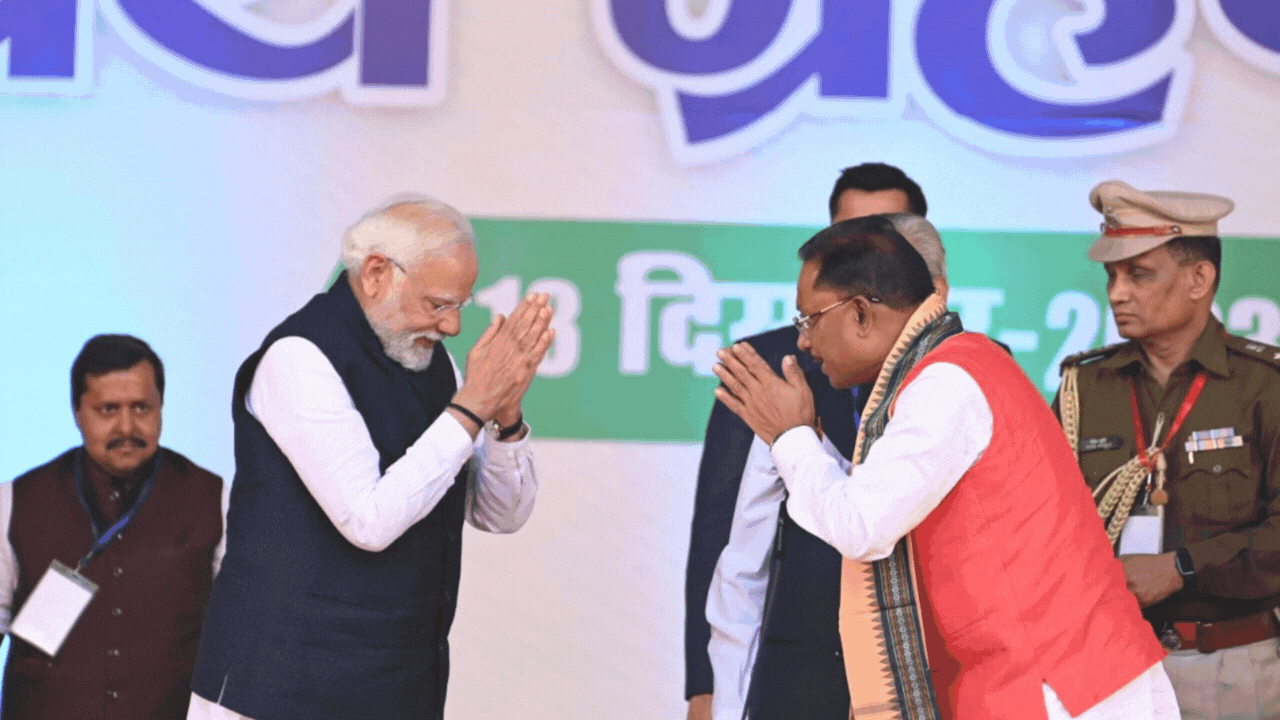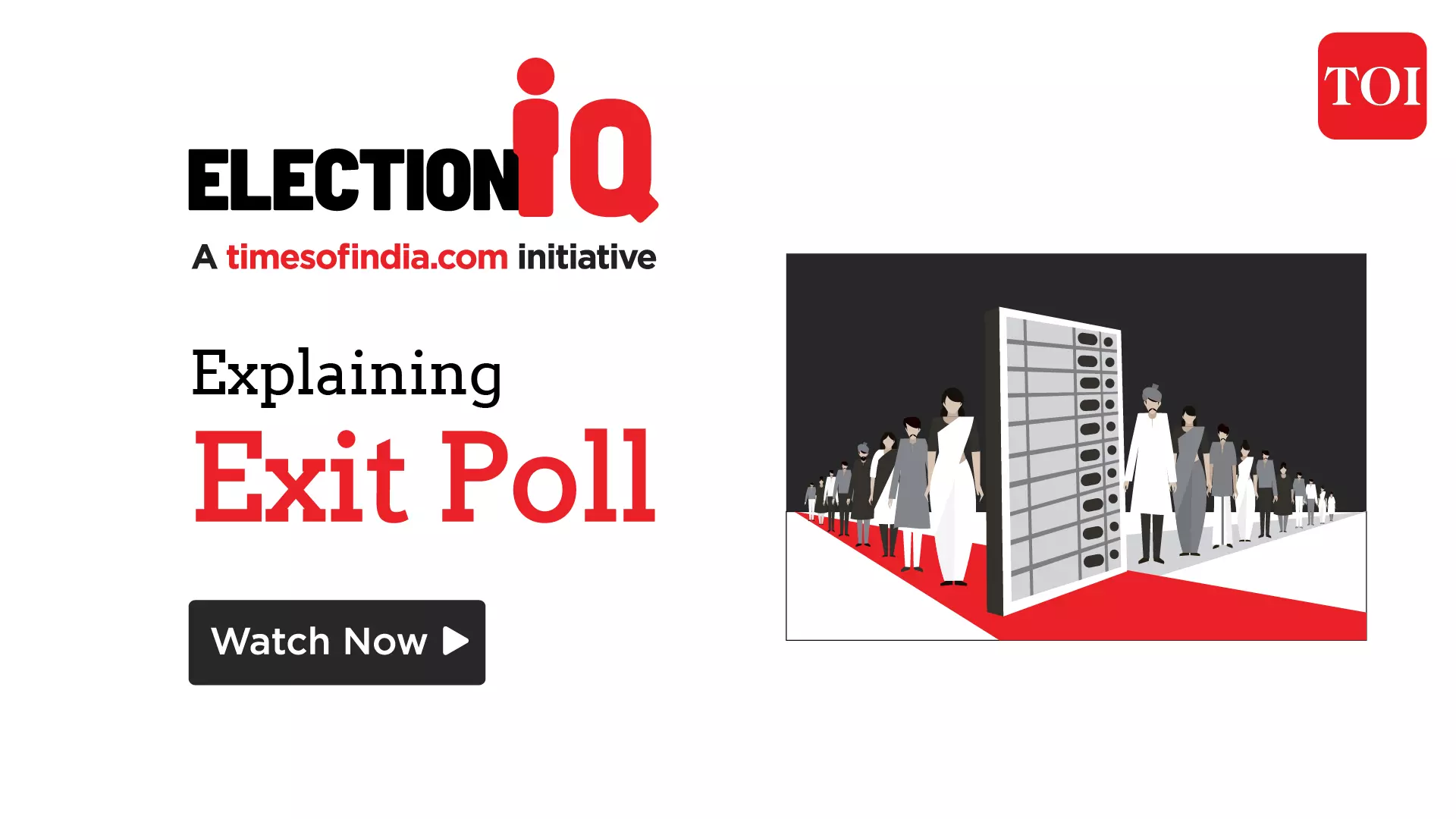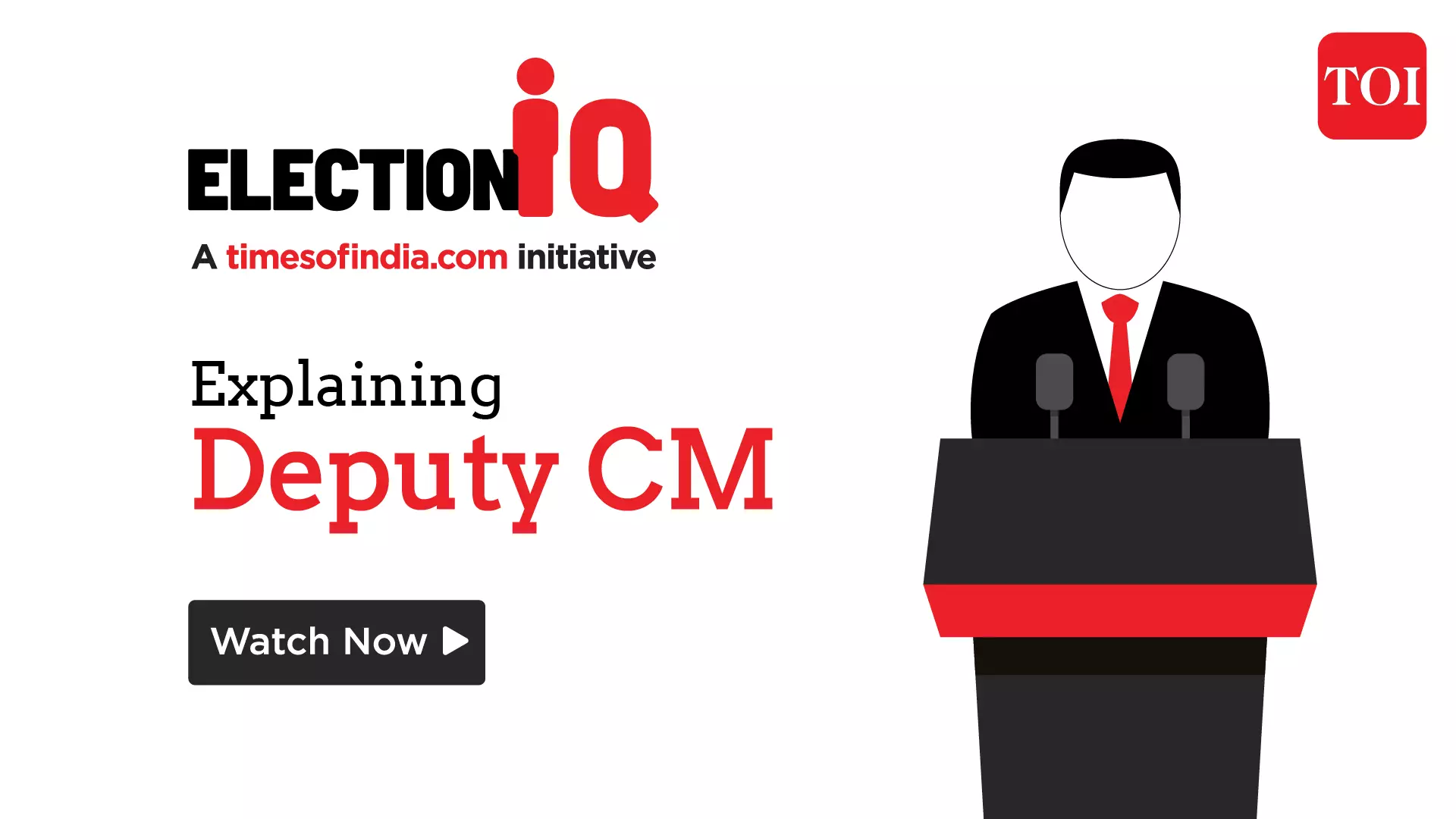this story is from December 13, 2023
Vishnu Deo Sai assumes office as Chhattisgarh CM; Arun Sao and Vijay Sharma sworn-in as deputy CMs

RAIPUR: Senior tribal leader Vishnu Deo Sai was sworn in as the chief minister of Chhattisgarh along with his two deputies, Arun Sao and Vijay Sharma, at an impressive gathering in the state capital on Wednesday. Prime Minister Narendra Modi, Union home minister Amit Shah, and chief ministers of other states were among those present.
Governor Biswabhushan Harichandan administered the oath of office and secrecy to chief minister Vishnu Deo Sai, 59, and Deputy Chief Ministers Arun Sao, 56, and Vijay Sharma, 50.
Prime minister Narendra Modi, present at the occasion, waved and bowed before the public after the BJP came to power with a thumping victory, winning 54 seats in the 90-member assembly. Modi also exchanged pleasantries with BJP leader Raman Singh and former Chief Minister Bhupesh Baghel, who were present on the dais.
Vishnu Deo Sai, elected from the Kunkuri (ST) constituency, is known for his gentle manner and unwavering grassroots connection throughout his 36 years of political life. His journey evolved from a panchayat member in a remote tribal village to encompassing union ministerial responsibilities, culminating in his elevation to the state's highest office.
The 59-year-old tribal leader is considered close to three-time chief minister Raman Singh. The BJP's substantial victory, securing 18 Scheduled Tribe seats and sweeping all 14 seats in the tribal-dominated Surguja region, contributed to his leadership role in a state where tribal communities constitute over 32 percent of the population.
Sai's political journey commenced in 1989, progressing from a village panchayat member to a Lok Sabha representative. His tenure as the minister of state for steel, mines, labour, and employment marked a significant phase in the first Modi government. Amidst the political shuffle within the BJP a year ago, Sai quietly retreated after serving as the state party chief, ultimately emerging as a surprise choice for the chief ministerial role.
Born into a tribal family, Sai's educational foundation and subsequent engagement in agriculture and social work underscore his commitment to uplifting tribal communities.
Deputy chief minister Arun Sao, sworn in as the deputy chief minister, was handpicked by the party in August 2022 as the state president to counter the assertive OBC politics of the then-ruling Congress. He belongs to the dominant Sahu community—the largest block among other backward classes (OBCs) in the state.

A former deputy advocate general, Sao was elected to the Lok Sabha from Bilaspur in the 2019 elections and has now won the assembly elections from the Lormi constituency. His name was also considered for the chief ministership, but the mantle finally fell on tribal leader Vishnu Deo Sai, considering the BJP’s sweep in the tribal belt.
Sao closely worked with the party after starting his political career when he joined the Bharatiya Janata Yuva Morcha in 1996. A lawyer by profession, he practiced in the Chhattisgarh High Court. Sao has been associated with the RSS since childhood.
Indications suggest that Sao could be assigned the crucial portfolio of the Home department.
Similarly, Vijay Sharma, also sworn in, is a first-time legislator representing the Kawardha constituency. He is credited with defeating senior Congress leader and minister Mohammad Akbar—the lone Muslim member in the 90-member assembly.

Sharma, 50, is the general secretary of the state BJP and had previously served as the state president of the Bharatiya Janata Party. He completed a Master of Science degree in Physics with honors from Pandit Ravishankar Shukla University in 1996 and a Master of Computers Applications degree from Madhya Pradesh Bhoj Open University, Bhopal, in 2001. Besides, he was also a member of the Kawardha Zila panchayat. His initial career was as an operator in a telecom company, and later, he was also engaged as a teacher in three colleges in the state.
During a communal flare-up in Kawardha on October 3, 2021, Sharma was arrested on charges of abetting the riot and violence but was later released on bail. The BJP then alleged that the then Congress government was specifically targeting its leaders in Kawardha. His election campaign had also turned high profile, with Uttar Pradesh chief minister Yogi Adityanath and his Assam counterpart Hemanta Biswa Sharma actively canvassing support for him.
Governor Biswabhushan Harichandan administered the oath of office and secrecy to chief minister Vishnu Deo Sai, 59, and Deputy Chief Ministers Arun Sao, 56, and Vijay Sharma, 50.
Prime minister Narendra Modi, present at the occasion, waved and bowed before the public after the BJP came to power with a thumping victory, winning 54 seats in the 90-member assembly. Modi also exchanged pleasantries with BJP leader Raman Singh and former Chief Minister Bhupesh Baghel, who were present on the dais.
The oath-taking ceremony occurred at 4 PM. Uttar Pradesh Chief Minister Yogi Adityanath, Assam chief minister Hemanta Biswa Sharma, and Goa chief minister Pramod Sawant also attended the swearing-in ceremony.
Vishnu Deo Sai, elected from the Kunkuri (ST) constituency, is known for his gentle manner and unwavering grassroots connection throughout his 36 years of political life. His journey evolved from a panchayat member in a remote tribal village to encompassing union ministerial responsibilities, culminating in his elevation to the state's highest office.
The 59-year-old tribal leader is considered close to three-time chief minister Raman Singh. The BJP's substantial victory, securing 18 Scheduled Tribe seats and sweeping all 14 seats in the tribal-dominated Surguja region, contributed to his leadership role in a state where tribal communities constitute over 32 percent of the population.
Sai's political journey commenced in 1989, progressing from a village panchayat member to a Lok Sabha representative. His tenure as the minister of state for steel, mines, labour, and employment marked a significant phase in the first Modi government. Amidst the political shuffle within the BJP a year ago, Sai quietly retreated after serving as the state party chief, ultimately emerging as a surprise choice for the chief ministerial role.
Born into a tribal family, Sai's educational foundation and subsequent engagement in agriculture and social work underscore his commitment to uplifting tribal communities.
Deputy chief minister Arun Sao, sworn in as the deputy chief minister, was handpicked by the party in August 2022 as the state president to counter the assertive OBC politics of the then-ruling Congress. He belongs to the dominant Sahu community—the largest block among other backward classes (OBCs) in the state.

A former deputy advocate general, Sao was elected to the Lok Sabha from Bilaspur in the 2019 elections and has now won the assembly elections from the Lormi constituency. His name was also considered for the chief ministership, but the mantle finally fell on tribal leader Vishnu Deo Sai, considering the BJP’s sweep in the tribal belt.
Sao closely worked with the party after starting his political career when he joined the Bharatiya Janata Yuva Morcha in 1996. A lawyer by profession, he practiced in the Chhattisgarh High Court. Sao has been associated with the RSS since childhood.
Indications suggest that Sao could be assigned the crucial portfolio of the Home department.
Similarly, Vijay Sharma, also sworn in, is a first-time legislator representing the Kawardha constituency. He is credited with defeating senior Congress leader and minister Mohammad Akbar—the lone Muslim member in the 90-member assembly.

Sharma, 50, is the general secretary of the state BJP and had previously served as the state president of the Bharatiya Janata Party. He completed a Master of Science degree in Physics with honors from Pandit Ravishankar Shukla University in 1996 and a Master of Computers Applications degree from Madhya Pradesh Bhoj Open University, Bhopal, in 2001. Besides, he was also a member of the Kawardha Zila panchayat. His initial career was as an operator in a telecom company, and later, he was also engaged as a teacher in three colleges in the state.
During a communal flare-up in Kawardha on October 3, 2021, Sharma was arrested on charges of abetting the riot and violence but was later released on bail. The BJP then alleged that the then Congress government was specifically targeting its leaders in Kawardha. His election campaign had also turned high profile, with Uttar Pradesh chief minister Yogi Adityanath and his Assam counterpart Hemanta Biswa Sharma actively canvassing support for him.
Download
The Times of India News App for Latest Elections News
Subscribe
Start Your Daily Mornings with Times of India Newspaper! Order Now


















All Comments ()+^ Back to Top
Refrain from posting comments that are obscene, defamatory or inflammatory, and do not indulge in personal attacks, name calling or inciting hatred against any community. Help us delete comments that do not follow these guidelines by marking them offensive. Let's work together to keep the conversation civil.
HIDE